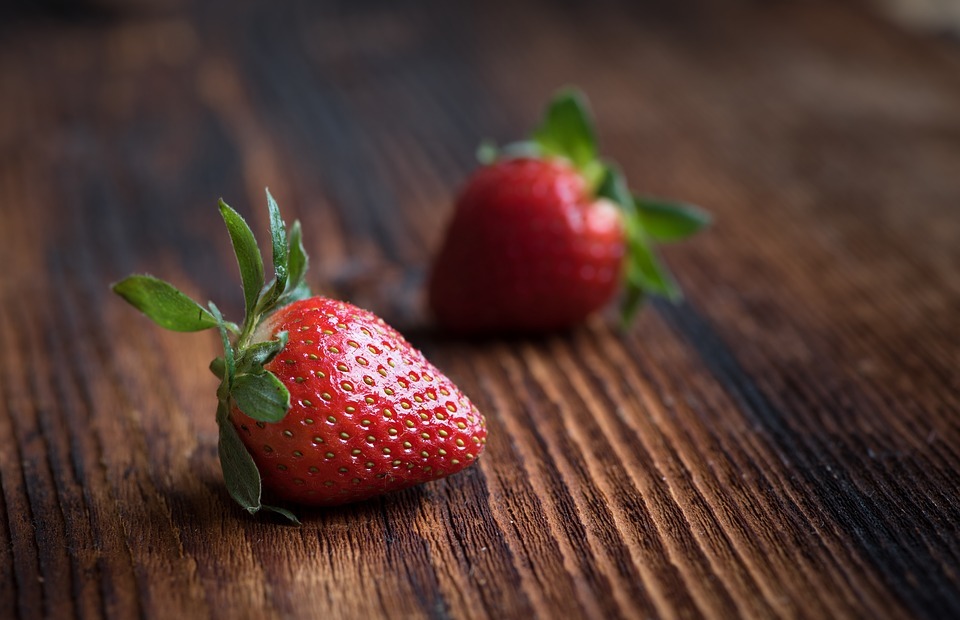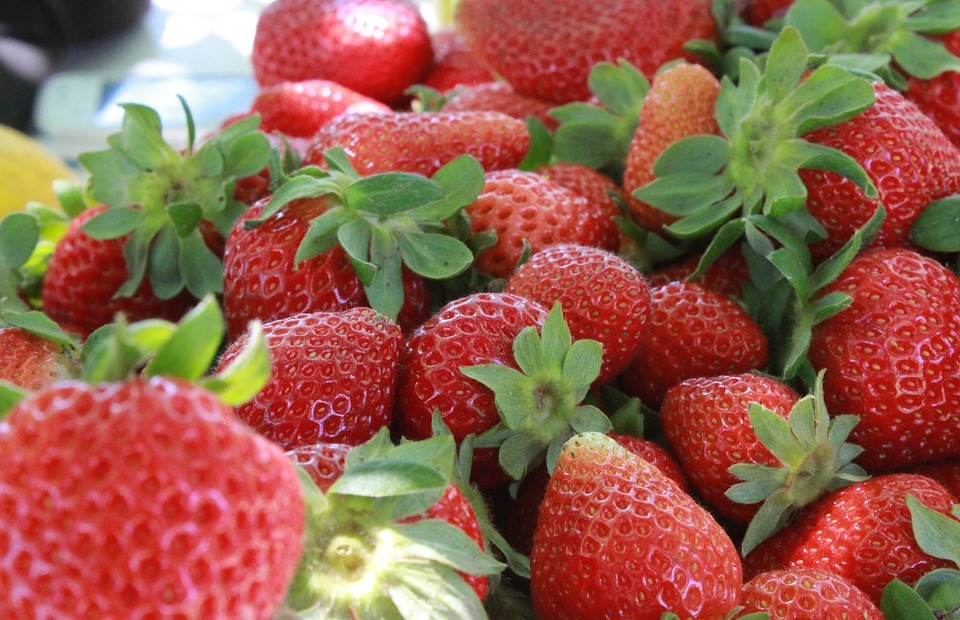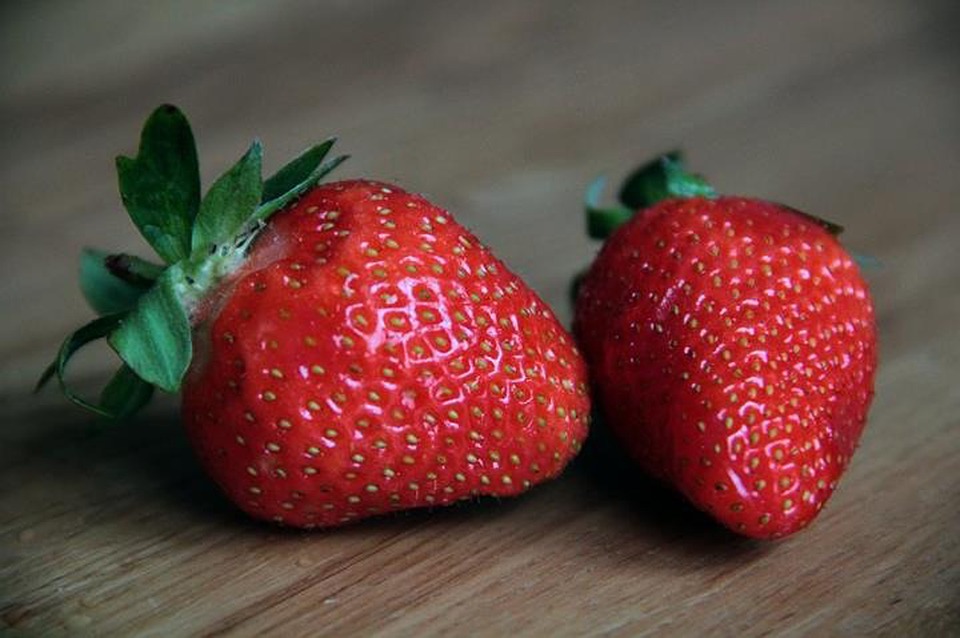This article delves into the question of whether cats can safely enjoy strawberries, a popular fruit among humans. We'll examine the nutritional value of strawberries, explore potential risks and benefits for our feline friends, and provide a comprehensive guide to incorporating this fruit into your cat's diet. By understanding the complexities surrounding feline strawberry consumption, you can make informed decisions about your furry companion's well-being.
Part 1: The Nutritional Value of Strawberries

1.1. Vitamins and Minerals: A Closer Look
Strawberries are a rich source of various vitamins and minerals essential for human health. However, their nutritional profile for cats is less clear-cut.
- Vitamin C: Strawberries contain a substantial amount of Vitamin C, a vital antioxidant. While cats can produce their own Vitamin C, it is still considered a beneficial nutrient. However, the amount of Vitamin C in strawberries is relatively low compared to other fruits and vegetables, making it unlikely to significantly impact a cat's overall Vitamin C levels.
- Potassium: This mineral plays a crucial role in maintaining fluid balance and muscle function in cats, and strawberries are a good source. However, cats obtain sufficient potassium from their regular diet, making strawberries a negligible source for this mineral.
- Folate: Essential for cell growth and development, folate is present in strawberries, but its importance for cats is still under investigation. While folate deficiency is rare in cats, further research is needed to determine the benefits of folate from strawberries.
1.2. Fibre: A Double-Edged Sword
Strawberries offer a moderate amount of dietary fibre, which is crucial for healthy digestion in humans. However, cats have a shorter digestive tract and are obligate carnivores, meaning their bodies are designed to digest meat-based diets. Excessive fibre intake can cause digestive upset in cats, including diarrhoea, vomiting, and gas.
1.3. Sugar Content: A Key Consideration
Strawberries contain natural sugars, primarily fructose, glucose, and sucrose. While these sugars are naturally occurring, excessive sugar intake can be problematic for cats. High sugar consumption can lead to weight gain, dental issues like tooth decay and gingivitis, and even more serious health complications like diabetes.
Part 2: Potential Benefits of Strawberries for Cats

2.1. Antioxidant Properties: A Possible Benefit
Strawberries are rich in antioxidants, compounds that combat free radicals and may reduce the risk of chronic diseases. These antioxidants could offer some benefits to cats, although further research is required. Antioxidants may play a role in supporting the immune system and reducing inflammation.
2.2. Digestive Support: A Limited Role
While strawberries are not a primary source of fibre for cats, their moderate fibre content might provide limited digestive support, particularly if your cat is experiencing constipation. However, the fibre content of strawberries is unlikely to be sufficient to address chronic constipation, and it's crucial to consult with your veterinarian for a proper diagnosis and treatment plan.
Part 3: Potential Risks of Strawberries for Cats

3.1. Sugar Content: A Major Concern
The sugar content in strawberries is a significant concern for cats, as excessive sugar intake can have detrimental effects on their health. Weight gain, dental issues, and even pancreatitis are possible consequences of consuming too much sugar.
3.2. Allergic Reactions: A Potential Risk
Cats can develop allergies to various foods, including fruits like strawberries. Signs of allergic reactions may include vomiting, diarrhoea, skin irritation, and difficulty breathing. These reactions can range from mild to severe, and prompt veterinary attention is necessary if any of these symptoms occur.
3.3. Pesticide Residues: A Reason for Caution
Pesticides used on strawberries can pose risks to cats, particularly if they consume large quantities. Look for organic strawberries or thoroughly wash them before feeding them to your cat. It's important to note that even organic strawberries may contain trace amounts of pesticides.
3.4. Toxicity: A Potential Issue
While strawberries are generally considered safe for cats in moderation, the leaves and stems of the strawberry plant are toxic to felines. If your cat ingests any part of the plant other than the fruit itself, it's important to contact your veterinarian immediately.
Part 4: How to Introduce Strawberries to Your Cat
4.1. Start Small: A Gradual Approach
If you decide to introduce strawberries to your cat, it's crucial to start slowly. Offer a tiny piece, no larger than a pea, and monitor their reaction closely. Allow your cat to sniff the strawberry first and observe their interest.
4.2. Observe for Signs of Sensitivity: Staying Vigilant
Watch for any signs of digestive upset, allergic reactions, or other adverse effects after giving your cat strawberries. Pay attention to changes in their behaviour, stool consistency, and overall energy levels. If you notice any issues, discontinue the treat and consult with your veterinarian.
4.3. Choose Organic Options: Minimizing Pesticide Exposure
When possible, opt for organic strawberries, as they have fewer pesticides. However, even organic strawberries may contain trace amounts of pesticides, so it's always best to wash them thoroughly before offering them to your cat.
Part 5: How Often Can Cats Eat Strawberries?
5.1. Occasional Treats: A Moderation Approach
Strawberries should be considered occasional treats for cats, not a regular part of their diet. Aim for no more than one or two small pieces per week.
5.2. Moderation is Key: Balancing Enjoyment and Health
Even if your cat enjoys strawberries, it's crucial to exercise moderation. Too much sugar can have detrimental effects on their health, leading to obesity, dental issues, and other health problems.
Part 6: Other Safe Fruits for Cats
While strawberries are a potentially safe treat, other fruits are considered more suitable for feline consumption due to their lower sugar content and higher nutritional value.
- Melon: Watermelon and cantaloupe offer refreshing hydration and are generally safe for cats, but avoid seeds and rind. These fruits are low in sugar and can provide essential vitamins and minerals.
- Blueberries: These small berries are packed with antioxidants and offer a good source of fibre. Blueberries are a healthier alternative to strawberries due to their lower sugar content and higher fibre content.
- Bananas: In moderation, bananas can be a healthy snack for cats, providing potassium and fibre. However, bananas are higher in sugar than blueberries and melons, so they should be given sparingly.
Part 7: The Importance of Consultations
7.1. Vet Advice: Seeking Expert Guidance
Before introducing any new foods to your cat, it is essential to consult with your veterinarian. They can assess your cat's individual health needs and advise on appropriate dietary choices. Your veterinarian can also help you determine the appropriate portion size and frequency for treating your cat with strawberries.
Part 8: FAQs
8.1. Can kittens eat strawberries?
It is not recommended to give strawberries to kittens due to their sensitive digestive systems and risk of allergic reactions. Their bodies are still developing, and they may be more prone to digestive upset or allergic reactions.
8.2. Are frozen strawberries safe for cats?
Frozen strawberries are generally safe for cats, but they should be thawed before feeding. Ensure the strawberries are completely thawed and not too hard for your cat to chew.
8.3. Can cats eat strawberry leaves?
Strawberry leaves are toxic to cats and should never be given to them. They contain chemicals that can cause gastrointestinal upset, liver damage, and other health problems.
8.4. What if my cat eats a whole strawberry?
If your cat accidentally eats a whole strawberry, there is no need to panic. Monitor them for any adverse effects, but they should be alright. However, if you notice any signs of digestive upset or allergic reactions, contact your veterinarian immediately.
8.5. Can cats eat strawberry jam?
Strawberry jam is not safe for cats due to its high sugar content, added preservatives, and potential for choking hazards. The sugar content in jam is much higher than in fresh strawberries, and the texture can be difficult for cats to swallow.
8.6. Can I give my cat strawberry juice?
Strawberry juice is not recommended for cats, as it is too sugary and lacks the nutritional value of the whole fruit. It's crucial to provide your cat with a balanced diet consisting of high-quality cat food and occasional treats, such as fruits and vegetables, that are appropriate for their dietary needs.
Remember, it's always best to consult with your veterinarian before introducing any new foods to your cat's diet. They can provide personalized advice based on your cat's individual health needs and help you ensure a safe and healthy lifestyle for your furry companion.
Everyone is watching
-

Are Cat Ribs Flexible? Understanding Their Anatomy
CATS & KITTENSThis article delves into the fascinating world of feline anatomy, exploring the flexibility of cat ribs and ho...
-

Can Cats Eat Bananas? (Everything You Need to Know)
CATS & KITTENSThis article dives into the intriguing question of whether cats can safely enjoy the sweet, yellow fruit, bana...
-

Cat Lifespan: How Long Do Cats Live?
CATS & KITTENSThis comprehensive guide explores the factors influencing the lifespan of our feline companions, providing ins...
-

Can Cats Get COVID-19? What You Need to Know
CATS & KITTENSThis article will delve into the fascinating world of feline COVID-19 susceptibility. We'll explore whether ca...
-

Can Cats Eat Eggs? A Complete Guide to Egg Safety for Your Feline Friend
CATS & KITTENSWhen it comes to treating our furry companions, we all want to ensure we're doing what's best for them. Eggs...
